Around the States in 50 Films: Falling Down
Disillusion and emasculation in sweaty, nineties LA
The second post in my dabble with American cinema is all about the 1993 psychological thriller Falling Down, directed by Joel Schumacher of The Lost Boys and Phone Booth fame. It stars Michael Douglas as an unemployed defence worker who becomes violently frustrated with the everyday flaws and injustices he encounters within the hot and sweaty Los Angeles society in which he lives.
The depiction of LA is pretty unflattering, a cruel, consumerist hellhole full of crime and corruption. The main character William Foster - who Simpsons fans will recognise in the Foster-based character of Frank Grimes - leaves his car in the middle of a stifling traffic jam and decides to walk back to the home of his ex-wife and daughter, an odyssey that leads him through the various stages of his declining mental health, purposelessness and toxic masculinity. He is pursued by the contrasting yet complimentary character of Martin Prendergast (played by Robert Duvall), a police detective dealing with his own lack of fulfilment in both his marriage and career.
Foster represents the ‘old ways’ of America, by which you supposedly worked hard, found moderate success and remained a valuable, dignified member of society. Foster always thought he was working towards something important - in his case, protecting the country from ‘communists’ through his defence work. But by the time the nineties rolled around and he stepped out of the symbolic traffic jam in which we have all been demoted from citizens into consumers, Foster realises how corrupt everything really is. Even Prendergast confirms his miserable epiphany:
‘Is that what this is about? You're angry because you got lied to? Is that why my chicken dinner is drying out in the oven? Hey, they lie to everyone. They lie to the fish.’
This film was released at the beginning of a prosperous decade that ended with the infamous Woodstock ‘99 festival in Rome, New York. If ever an event represented the descent into consumerism, greed and toxic masculinity, this was it - the day the music died. Although it shared a name with the iconic 1969 festival forty years earlier, one of the reasons there was so little similarity between the two was because the central ideas behind the original Woodstock - peace, music and unity - could no longer exist in a world where overconsumption, neoliberalism and growing wealth inequality had taken over every aspect of American life. Instead of peace, music and unity, the event was marred by a heatwave, overpriced food and water, poor sanitation, sexual abuse and rapes, rioting, looting, vandalism, arson, violence and several deaths. At its heart, Woodstock had become an opportunity for profit, not peace. (Coincidentally, Ocean Colour Scene released their banger Profit in Peace the same year.)
When we become consumers instead of citizens, we lose our purpose, our sense of worth within a wider, nurturing community. When individuals are valued over society as a whole, people like Foster emerge in a haze of anger, poor mental health and disillusionment. It is a pattern that has only become more prevalent in the face of Trump’s MAGA America, in which angry young men are turning to violence, misogyny and racism because they have been stripped of self-worth and encouraged to blame immigrants (lazy thieves), the poor (lazy scroungers) or women (entitled bitches) - anyone except the powerful elites who profit from their anger.
There was an interesting range of female representations in the film, including Foster’s ex-wife and mother of his child, who recognised his violent nature early enough to get a restraining order before he could physically attack her or their daughter. When he threatens to visit her again, she calls the police to ask for help, only to be humoured for a while, called hysterical behind her back and questioned (by a male officer) why she went to such lengths if he never actually hit her:
‘Did he strike you?’
‘Not exactly.’
‘Not exactly?’
‘You know, there were times when I thought he was going to, but I just didn’t want to wait until he got around to it. It’s hard to explain. He could, I think.’
‘You think?’
One reviewer described this film as a Rorschach test, capable of being interpreted in multiple ways depending on the viewer’s own values and biases. I pitied Foster’s character and understood why he felt the way he did, despite his resulting actions being wrong. But in many ways, the tragedy was not in his rage and violence, but to whom those feelings were directed. Just like today’s angry young men, the violence is rarely aimed at the perpetrators (with the exception of anti-heroes like Luigi Mangione). Aside from his wife, most of Foster’s anger was aimed at people like the fast food servers, not the conglomerates who employ them. Or the Korean shop owner who overpriced his stock, rather than the wider economic system that enabled him to do it. But he is a man with poor mental health, crushed beneath unregulated capitalism and left with no purpose, no future or self-worth. His actions are wrong, but they ask the right question: What are we living for?
Six more films based in California
Clueless (1995)
Loosely based on Jane Austen’s Emma, a rich high-school student from Beverly Hills learns to cope with adolescence whilst also helping a new student gain popularity and discovering she has feelings for someone else.
Milk (2008)
The story of American gay activist Harvey Milk, who fought for gay rights and was elected as California's first openly gay official.
Almost Famous (2000)
A talented teenage journalist from San Diego gets a once in a lifetime opportunity to tour with a rock band in the 1970s and write his first cover story about the experience.
Chinatown (1974)
Mrs Mulwray hires a detective (played by Jack Nicholson) who specialises in matrimonial cases to spy on her husband, the builder of the city's water system. When Mr Mulwray dies, he finds himself in a web of deceit.
Lady Bird (2017)
A fiercely independent teenager tries to make her own way in the world while wanting to get out of her hometown of Sacramento, and to get away from her complicated mother and recently-unemployed father.
Escape from Alcatraz (1979)
Starring Clint Eastwood, three daring men make a possibly successful attempt at escaping from one of the most infamous prisons in the world.



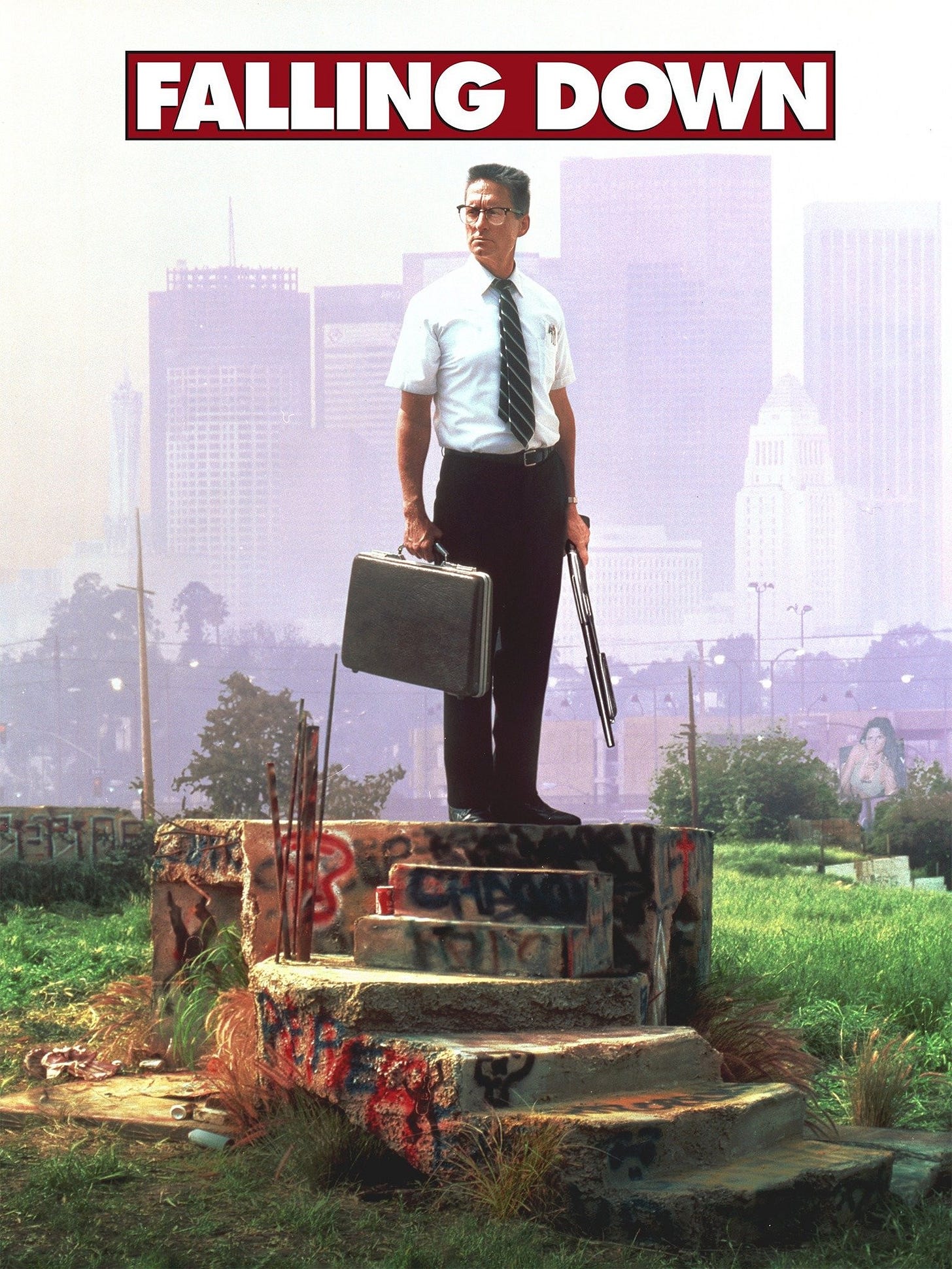
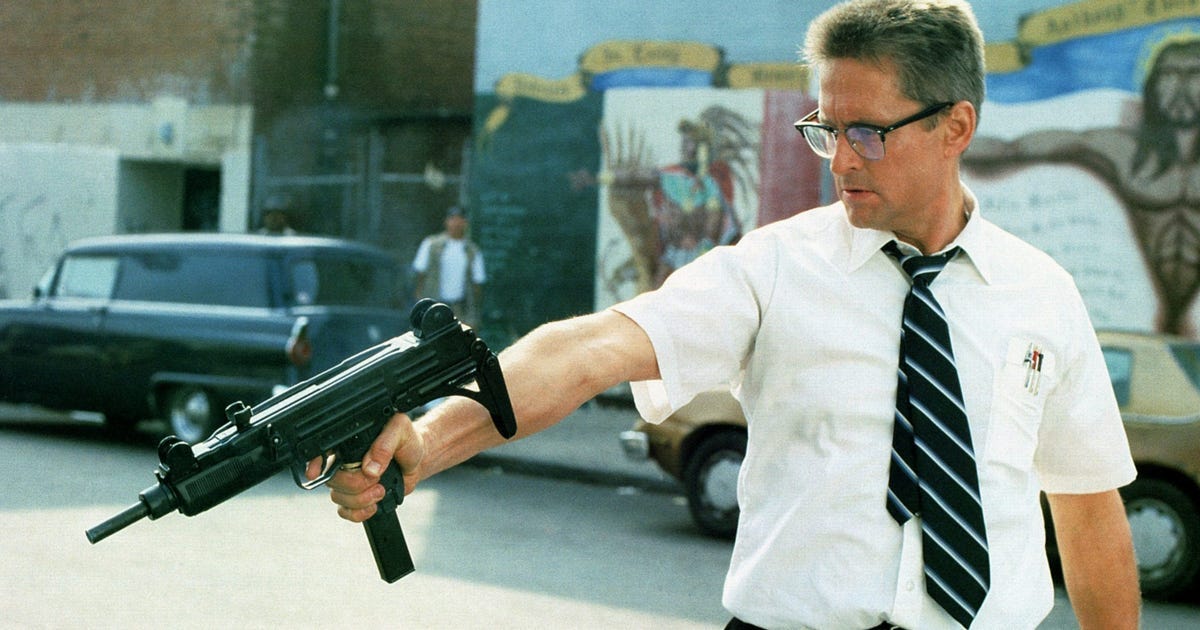
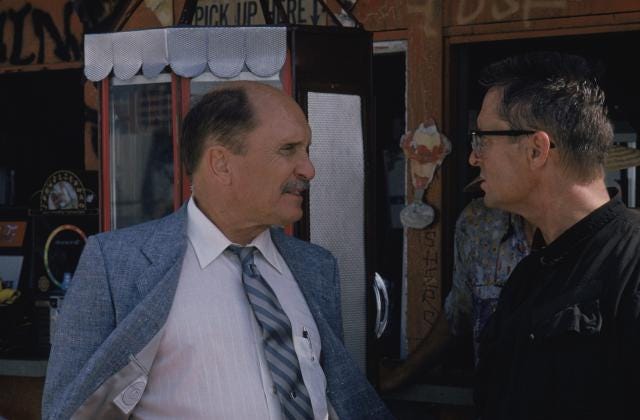
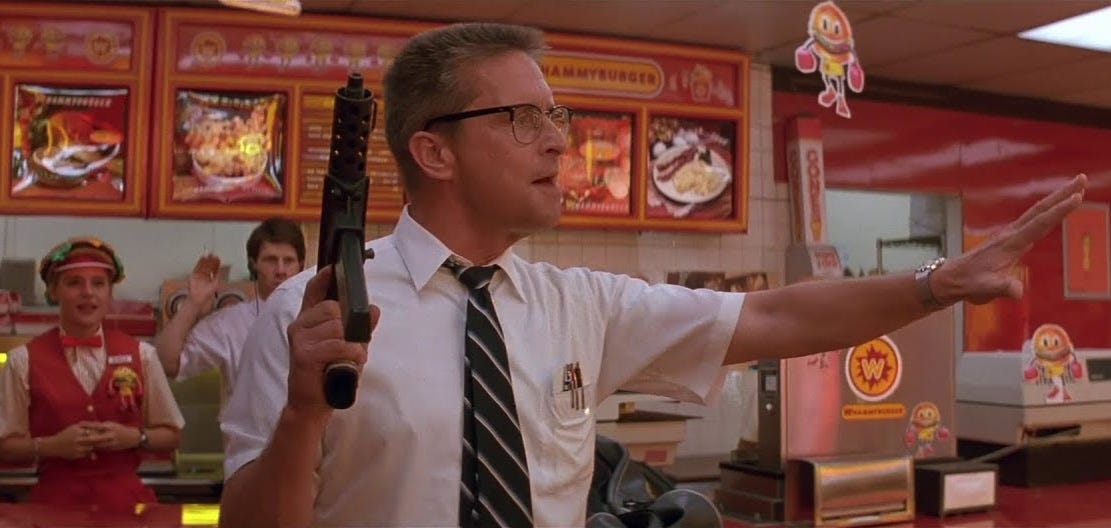
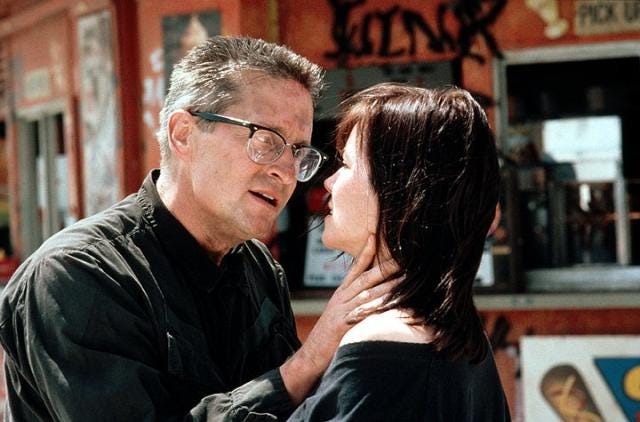
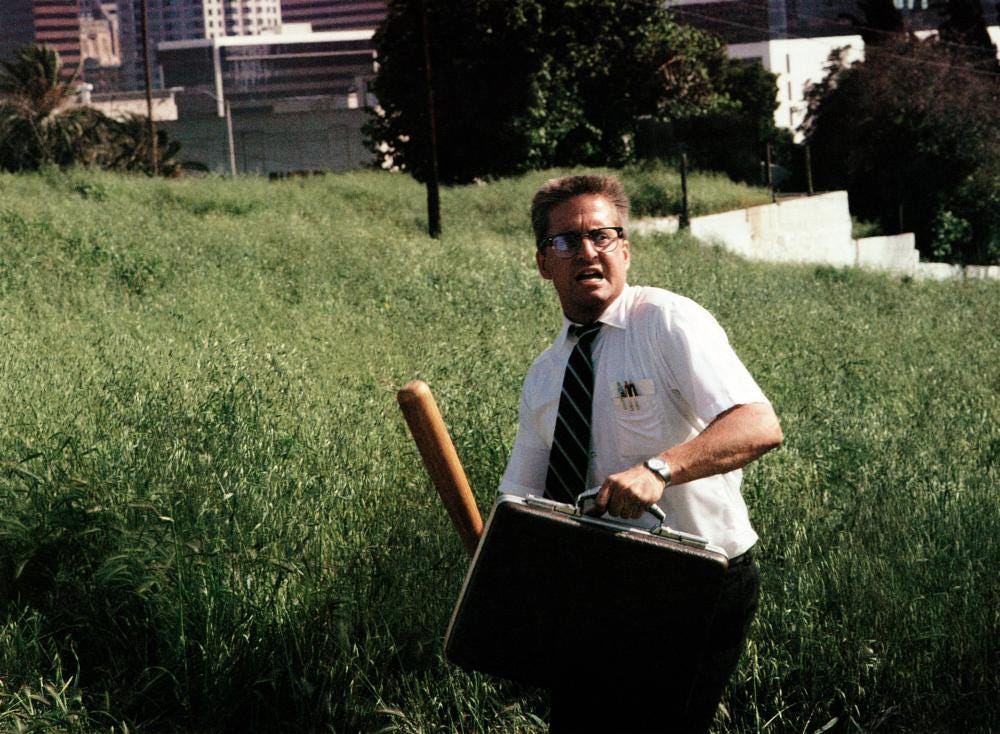

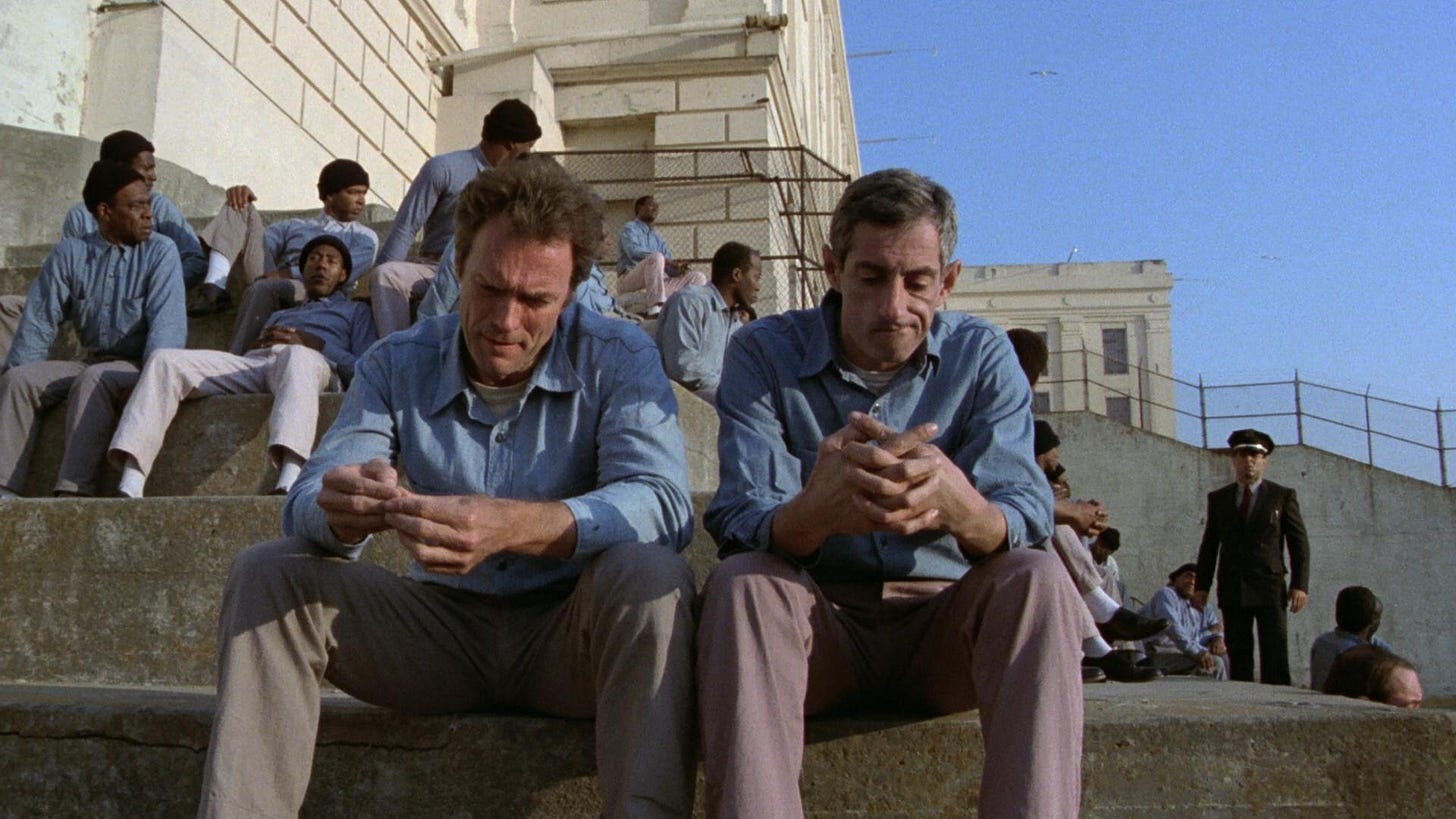

Awesome choice and a brilliant analysis of the film - I’d also add the way the UK has mirrored too the same US traits (with Brexit/Reform standing in for Trumpism - the only saving grace we have is strict gun laws).
I’d strongly recommend ‘Heat’ (1995) for CA too - echoes of Falling Down as well. For something more ‘up’beat then ‘Sideways’ (2004) - two buddies in search of wine!